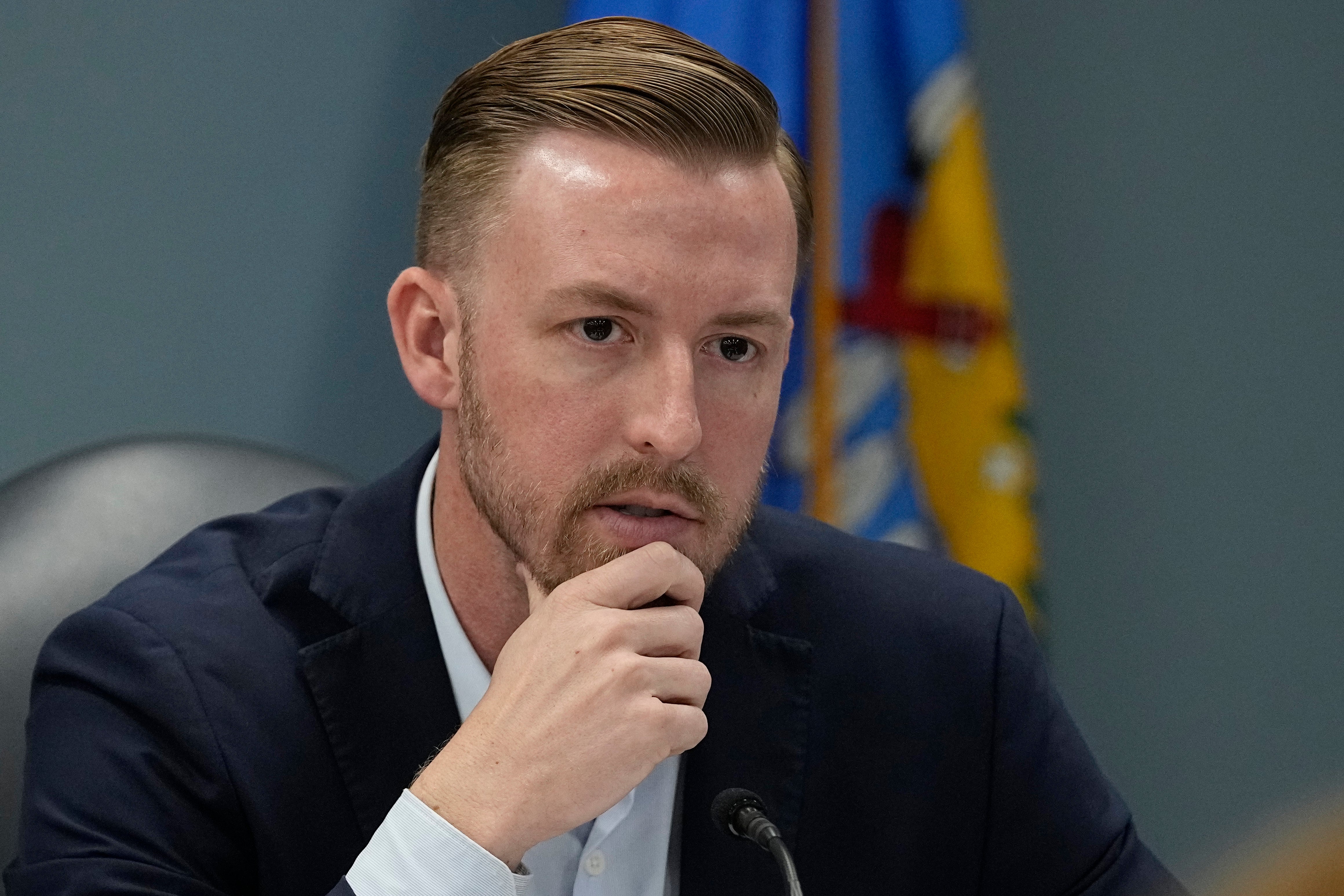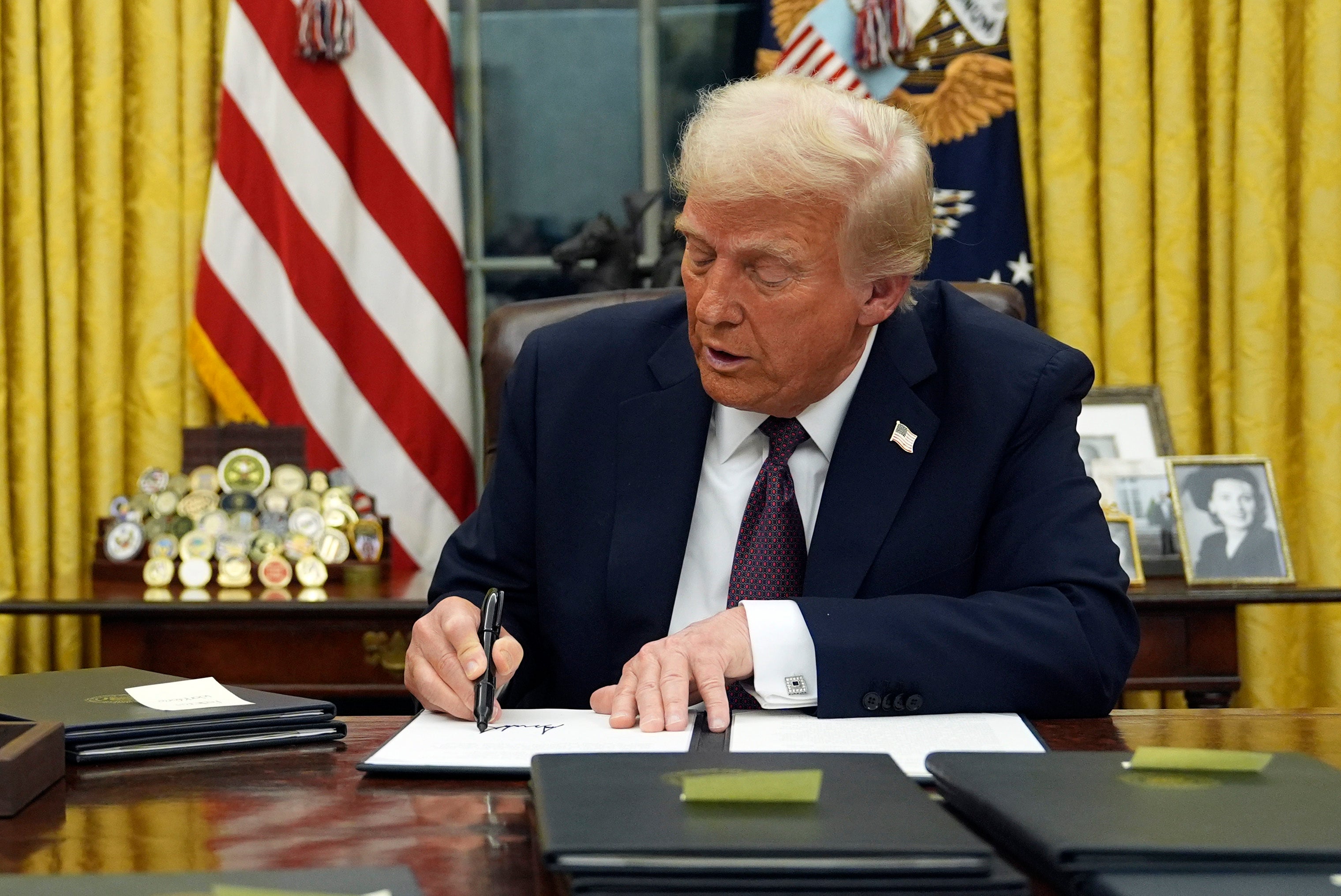New laws could force parents to prove children’s citizenship status before going to public school
Oklahoma Board of Education is considering a rule that would require parents enrolling children in public schools to provide proof of their child's citizenship or legal immigration status
Parents enrolling children in Oklahoma public schools could be required to provide proof of their child's U.S. citizenship or legal immigration status under a proposal aimed at bolstering President Donald Trump's immigration policies.
The proposed rule would require each school district to keep track of the number of students whose parent or guardian cannot provide proof of U.S. citizenship or legal immigration status and then submit that information to the Oklahoma Department of Education. That information would only be the number of students without documentation not any personally identifiable information.
Ryan Walters, the Republican State Superintendent, said the rule would not prohibit students without legal status from attending schools but would require districts to keep a tally.

Walters claims the goal of the rule is to provide resources to teachers including tutors, tutoring programs, transportation needs and English as a Second Language (ESL) teachers.
“Not only do our rules serve Oklahoma taxpayers, but they will help ensure resources are directed to the students who need them most,” Walters said in a statement last week.
“Because of the Biden administration’s yearslong failure at the border, hardworking Oklahomans deserve to know how much they are spending to comply with the federal government’s unfunded mandates,” he added.
The proposed rules, which Oklahoma’s education board is set to vote on Tuesday, are in the early stages and would still need approval from lawmakers and the governor to take effect.
The plan has been sharply criticized by teachers and civil liberty groups and caused fear within Oklahoma’s immigrant communities, said state Representative Arturo Alonso-Sandoval, a Democrat who represents Oklahoma City‘s heavily Hispanic south side.
“The community is scared, obviously,” Alonso-Sandoval said. “The conversations I’ve had with parents, all they’re doing is trying to provide the best opportunity for their kids, like any parents. They are starting to question: Do I unenroll my child from school?”
Walters has said he would support Trump’s efforts to enforce immigration laws, including allowing federal agents with Immigrations and Customs Enforcement into Oklahoma schools.
Walters has spent much of his first term in office attacking what he describes as “woke” ideology in public schools, requiring Bible instruction in Oklahoma classrooms and attempting to ban books from school libraries.

At Oklahoma City Public Schools, one of the state's largest districts with a student population that is 57% Hispanic, Superintendent Jamie Polk said in a letter to parents and staff last month after the rule was first proposed that federal law guarantees every child's right to public education regardless of immigration status.
“OKCPS does not, nor do we have plans to, collect the immigration status of our students or their families,” Polk said.
For decades, children of families living in the country illegally have had the right to attend public school based on a 1982 Supreme Court decision known as Plyler v. Doe. In a 5-4 vote, justices held it is unconstitutional to deny children an education based on their immigration status.
Alabama attempted a similar requirement for public schools to ask the immigration status of students as part of a sweeping immigration law in 2011, but the state ultimately agreed to permanently block those provisions after they had been temporarily halted by a federal appeals court.
Immigration experts say attempts to undermine the Plyler decision should be taken seriously, pointing to recent Supreme Court rulings that have overturned longstanding precedents over abortion rights and affirmative action in higher education.
Bookmark popover
Removed from bookmarks